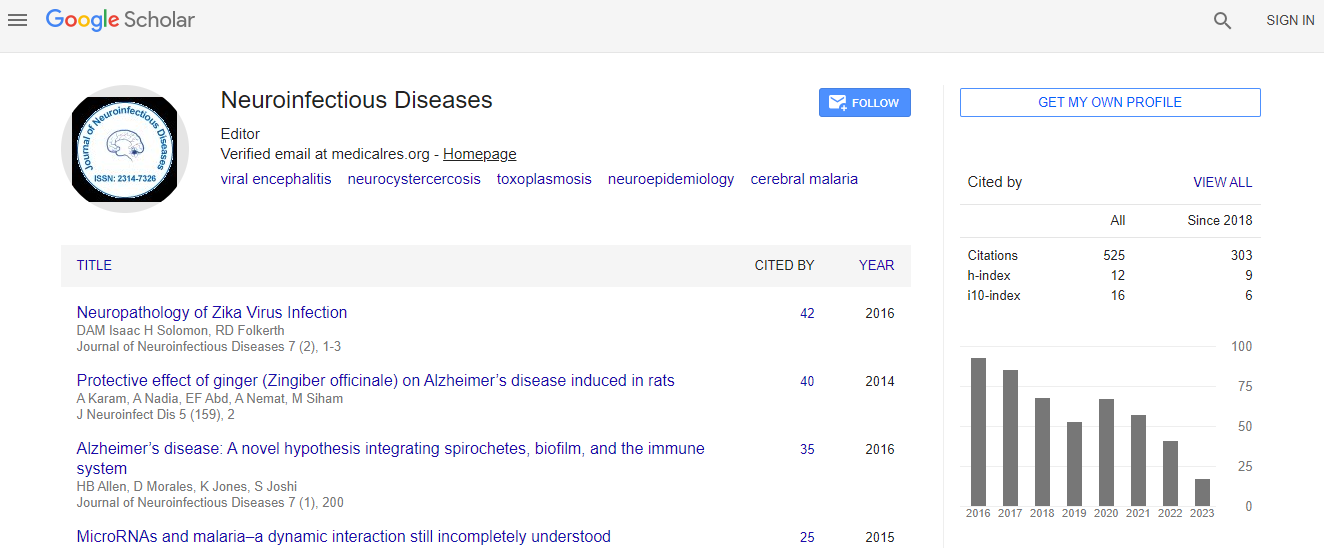Research Article
Cognitive Outcome in HIV-Individuals with cART Containing ABC/AZT
Abstract
Objective: The aim of our study was to investigate whether an antiretroviral regimen including ABC and AZT can be used to improve or maintain neuropsychological and neurophysiological parameters and effectively suppress HIV Viral Load (VL) in the Cerebrospinal Fluid (CSF).
Design: An open prospective observational study
Methods: 11 HIV-infected patients of all disease stages were assessed at four visits: before combined antiretroviral treatment (cART) was started or changed as well as 6, 12 and 24 months later. At each visit subjects underwent comprehensive neuropsychological (NP) testing as well as neurological and neurophysiological exam. HIV VL was measured in paired plasma and CSF samples. NP results were compared to a historical untreated matched control group and correlated to HIV duration, viral load as well as CD4 nadir.
Results: 3 patients fulfilled the criteria of Asymptomatic Neurocognitive Impairment (ANI) at baseline. A group comparison to the untreated control group at baseline revealed significantly worse results in the study population in 4 cognitive domains: executive and visuoperceptual functions, figural memory and verbal fluency. Executive function correlated significantly with the CSF viral load. At the end of the observational time all treated study patients showed normal NP performance while the untreated controls deteriorated in motor functions.
Conclusions: HIV-individuals, who were treated with the CNS penetrating drugs ABC and AZT, have shown neurocognitive improvement compared to an untreated control group suggesting that this treatment may prevent neurocognitive impairment in HIV infection.

 Spanish
Spanish  Chinese
Chinese  Russian
Russian  German
German  French
French  Japanese
Japanese  Portuguese
Portuguese  Hindi
Hindi 
